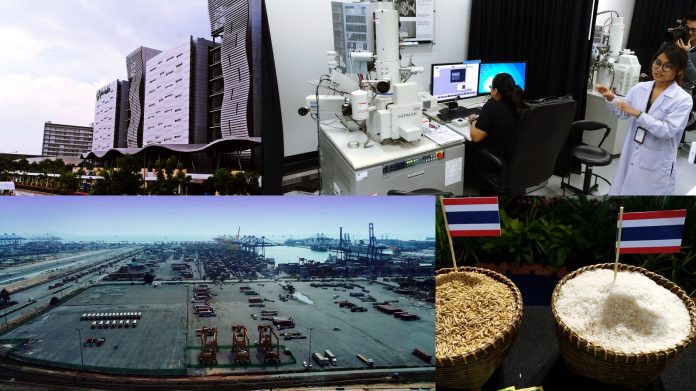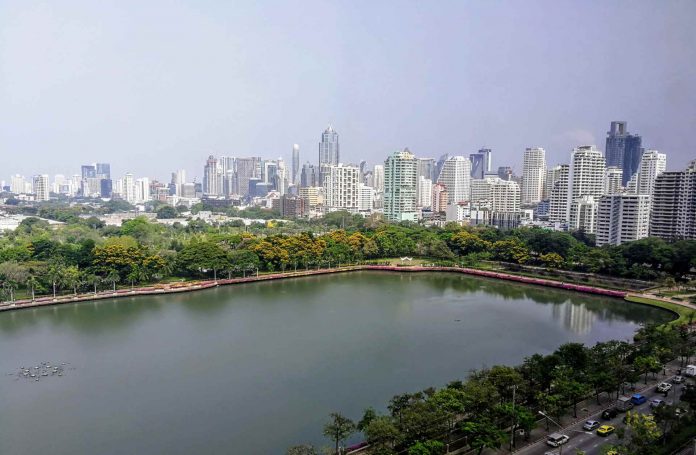Vietnam can expect its fintech ecosystem to grow in the near future should it pay attention to the funding issue, growing talent in the field, and a legal framework to support such growth.

Vietnam is currently ranked second in the number of incubator, accelerator, and innovation labs in the region, behind only Singapore. This is a positive signal for the development of fintech in Vietnam.
The country has another advantage in being a young and digitally savvy economy. As per an EY report, around 90 per cent of payments are still in cash. That is the reason why Vietnamese fintech startups have strong focus on payment—47 per cent specialises in this sub-sector, ranking highest in the region.
There are also some fintech associations in Vietnam where fintech startups can gather to update, improve their knowledge, seek support, share experiences, and develop a legal framework for this industry.
“Fintech companies are still small in scale and the policies and regulations for these companies are still limited. Many banks are still cautious in their decision to cooperate with fintech. They do not realise that there are people who have never opened a bank account, but the number of smart phone users is increasing. Fintech is the bridge that helps banks bring more services closer to more people,” said Duong Nguyen, EY Vietnam partner, leader of Financial Service Organisations and IT Advisory Services, and vice president of Vietnam Fintech Association (VietFintech).
Apart from the funding issue, talent shortage and government support policies and regulations are other major challenges that fintech in Vietnam as well as the region have to face.
Brian Thung, managing partner at EY ASEAN Financial Services, said, “Governments play a vital role in shaping a conducive fintech ecosystem that helps attract and develop the right talent pool and promotes innovation and collaboration and healthy competition.”
Surveying more than 250 fintech companies in more than 10 countries, EY’s ‘Fintech ASEAN 2018 Global Survey’ analyses the ASEAN fintech ecosystem in addition to providing a platform for fintech enterprises to express their views on a range of matters related to adoption, investment, talent, and environment. The report examines in depth how governments across the ASEAN have and can further facilitate thriving fintech hubs. The census also provides views from industry and domain experts on the ASEAN fintech ecosystem.
According to Tracxn, investment in the ASEAN’s fintech sector has surged, jumping 45 per cent year-over-year to $366 million in 2017. However, little has been discussed and published about the opportunities and challenges facing the fintech industry in the region.
To understand the key factors shaping the industry and bringing to the forefront the voice of fintech in the region, EY has undertaken this research and surveyed more than 250 fintech in early 2018. Participants include fintech enterprises primarily from the ASEAN countries as well as those outside who are looking to enter the region. The findings are presented in the inaugural EY ASEAN Fintech Census 2018.
The financial services industry in the ASEAN region is rapidly evolving as a result of disruption by new-age Financial Technology companies (fintech). Fintech, which combines innovative business models with digital technologies to render financial services, is witnessing a visible ascendance in the ASEAN, as well as around the world.
Rapidly expanding economies, young, urban, and digitally-savvy population, increasing mobile and internet penetration, and largely underserved small and medium-sized enterprises (SMEs) and consumer markets by traditional financial institutions are all factors that have led to the rapid adoption of fintech innovation in the region.
On the back of strong fundamentals and with fintech adoption on the rise, the ASEAN as an engine of economic growth and prosperity has caught the eye of global investors. Investment in the region’s fintech sector has surged, jumping 45 per cent year-over-year to $366 million in 2017, according to Tracxn.
VIR



 A series of essays by leading scholars and activists on efforts around the world to improve and defend civil society’s legitimacy.
A series of essays by leading scholars and activists on efforts around the world to improve and defend civil society’s legitimacy.

 China’s actions in the South China Sea will likely have adverse consequences for the global maritime order. Such actions require a sustained and intentional response on the part of the United States.
China’s actions in the South China Sea will likely have adverse consequences for the global maritime order. Such actions require a sustained and intentional response on the part of the United States.




 India and other countries around the Bay of Bengal should invest greater resources in the multilateral institution BIMSTEC to promote regional connectivity and shared prosperity.
India and other countries around the Bay of Bengal should invest greater resources in the multilateral institution BIMSTEC to promote regional connectivity and shared prosperity.
